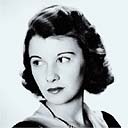As is now known, George Orwell (on request) compiled a list of those who he considered unreliable in the event of British/SovietUnion hostilities (cold or hot), and gave it to the Brit government.
Orwell's reputation has come under much flak for that; however Orwell did it at a time when Russian Soviet totalitarianism seemed a very great danger indeed (after WW2).
Orwell had seen for himself the Soviet sabotage of the Republican side in the Spanish Civil War --- sabotage by purges, imprisonment, murder --- and knew much about conditions in Russia and Eastern Europe.
There has just come out some new and very interesting aspects of that whole list affair
(emphasis in bold in the following quote was added by myself):
Quote:
News article: Blair's babe: Did love turn Orwell into a government stooge?
George Orwell, venerated as "the wintry conscience of a generation", gave the British government a list of 38 suspected or actual communist sympathisers, the Guardian reveals today.
A carbon copy of the document - which the government still treats as secret 54 years later - is reproduced for the first time in today's Review.
......
The list is revealed in a 4,000-word article in Review by the political historian and commentator Timothy Garton Ash. He says that what brought the creator of Big Brother and the foe of bureaucratic power into the hands of a real-life bureaucracy was the love of a beautiful woman - "or at least his quest for her affection".
The woman was Celia Kirwan, a friend of Orwell's who worked in 1949 for a secretly funded Foreign Office section, the information research department (IRD).
She asked his help in countering waves of communist bloc propaganda in the intensifying cold war. Orwell, whose real name was Eric Blair, offered to compile from his notebooks a list of those "who should not be trusted as propagandists [for the west]".
The writer, already terminally ill with tuberculosis and desperate about the then Soviet Union, died in 1950. When Kirwan died last autumn, her daughter, Ariane Bankes, found among her papers a carbon of the list which Orwell had finally sent her. Ms Bankes asked Garton Ash to write about it.
.....
Its discovery proves Orwell, after conscientious second thoughts and deletions, did send the Foreign Office some names from his notebook drafts.
.......
Subsequent evidence has lent weight to the view that Orwell was spot-on with one suspect, and probably right about two others including Tom Driberg, a one-time Labour party chairman and longstanding member of the Labour national executive.
The Daily Express journalist Peter Smollett has been identified as a Soviet agent, recruited by Kim Philby, by study of the Mitrokhin archive of documents revealed by a senior KGB librarian. Smollett headed the Russian section in Britain's wartime information ministry.
In a twist of fate, Garton Ash writes that he was "almost certainly" the civil servant on whose advice the London publisher Jonathan Cape rejected Orwell's Animal Farm as an unhealthily anti-Soviet text. The rejection was a severe blow to the author. Driberg is identified in the Mitrokhin archive as recruited by the Soviets in 1956 after a homosexual indiscretion in Moscow. He was a "doubtless deeply unreliable agent", Garton Ash says.
................
Yesterday Garton Ash said: "To me, Orwell's reputation is barely blemished. It is a tremendously human story. If if he had recovered from TB, and you and I had been sitting with him five years later, I think he might have said 'It was a mistake'."
|





